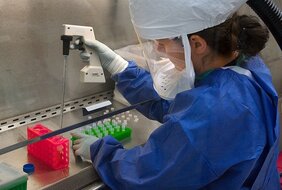According to the new reports, of the 60 products (50 antibiotics and 10 biologics) currently in development globally, only a few target the most critical drug-resistant microbes, while the vast majority “bring little benefit over existing treatments.” There are, however, 252 pre-clinical candidates targeting 12 “priority pathogens” that are currently in early stages of testing. But these will require several years before they reach patients.
The reports found that research and development (R&D) for antibiotics is primarily performed by small- or medium-sized companies, while large pharmaceutical companies continue to exit the arena as a result of bankruptcies. Investments in antimicrobial treatments by major pharmaceutical companies are diminishing because of the low profitability of antibiotics, which are taken only for a short period of time compared to drugs that treat chronic conditions.
“Never has the threat of antimicrobial resistance been more immediate and the need for solutions more urgent,” says Dr. Tedros Adhanom Ghebreyesus, Director-General of WHO. “Numerous initiatives are underway to reduce resistance, but we also need countries and the pharmaceutical industry to step up and contribute with sustainable funding and innovative new medicines.”
Another report by a private sector coalition called the AMR Industry Alliance suggests that a “concerning shortfall” in late stage R&D investment to tackle antimicrobial resistance (AMR) means that future global health needs are unlikely to be met. “The overall investment figure is likely insufficient to deliver the tools needed to address AMR,” the report warns. “Levels may further decrease in the coming years if governments do not take urgent action to improve antibiotic reimbursement systems and implement new incentives for development.” The Alliance urges collaboration between the public and private sectors to address the global challenge.
(AIBS)






